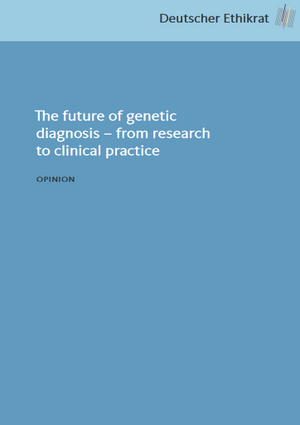The future of genetic diagnosis – from research to clinical practice
Published: 30 April 2013
Knowledge can be helpful, but it can also become a burden. This applies in particular to medical relevant information obtained from genetic diagnosis. To counteract these negative effects, the German Ethics Council recommends 23 measures for the improvement of information, explanation, and counseling, on the basis of the right of informational self-determination of people affected by a genetic test.
The German Ethics Council calls for improvements in the provision of information to the public, in the training of healthcare professionals and in the quality of genetic tests and their funding within the healthcare system. Furthermore, it recommends a number of amendments to the Genetic Diagnosis Act concerning the screening of newborns and the conduct of genetic tests for non-medical purposes. It also calls for improved, EU-wide measures to provide for independent consumer information and for patient and consumer protection.
Considering prenatal diagnosis in cases of increased risk of a disorder of genetic origin, the German Ethics Council could not make a unanimous decision. Nonetheless, the council calls for taking account of the particular emotional situation of the pregnant woman and making it easier for parents of children with disabilities to access possibilities of support.

